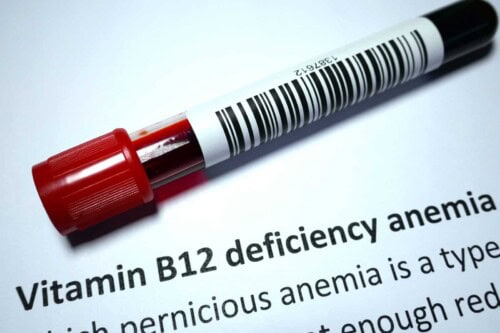Maintaining Certification for Acute Care, Psychiatric-Mental Health, Neonatal, Women’s Health, & Pediatric NPs
I am a newly certified NP and I know I will eventually need to renew my certification. When do I need to renew and what are the steps involved?
Maintenance or renewal of certification is an ongoing process designed to help NPs maintain a current knowledge base and professional competence in their practice. Soon after you achieve initial certification, you should learn your certifying organization’s certification renewal requirements and set a plan for meeting them. Keep in mind, however, that recertification requirements are dynamic, and that you need to fulfill the recertification requirements for the year of recertification, not the year of initial certification.
NPs have a professional responsibility to be aware of current recertification requirements — the certification organizations provide ample notice when requirements change. As a starting point for newly certified NPs unfamiliar with the recertification process, this article provides an overview of the current certification maintenance requirements for psychiatric-mental health, adult gerontology acute care, neonatal, women’s health care, acute care, and primary and acute care pediatric NPs. An article in a previous issue discussed the maintenance of certification requirements for family, adult gerontology primary care, and emergency NPs. Note that all certifying organizations require that NPs hold current RN licensure during the period of certification.
American Nurses Credentialing Center (ANCC): Psychiatric-Mental Health NP & Adult-Gerontology Acute Care NP
Certification by the ANCC is valid for five years and can be renewed by completing professional development and practice activities over the five-year certification period. NPs can apply for renewal up to one year before or up to two years after their certification expires (which requires payment of a $125 reactivation fee). After more than two years, the exam must be retaken to regain certification, if the exam in your specialty is still available, and the mandatory 75 CE hours must be completed. If the exam or portfolio is not available, there is no option to renew your certification.
The ANCC’s certification renewal process requires NPs to complete 75 CE hours in their certification specialty, of which 25 hours must be in pharmacotherapeutics, and to complete one or more activities in eight other renewal categories within the five years preceding their renewal application submission. The renewal categories are:
- Academic credits (five semester credits or six quarter credits in NP’s certification specialty)
- Presentations (one or more presentations totaling five clock hours in the NP’s certification specialty)
- Evidence-based practice/quality improvement project, publication of articles(s) or book chapter or authorship of grant, or research
- Preceptor hours (120 hours)
- Professional service (two or more years of volunteer service with an international, national, state, or local healthcarerelated organization)
- Practice hours (minimum of 1,000 hours in NP’s specialty completed within the five years preceding the date on the renewal application submission)
- Assessment (exam or portfolio, if available)
Further details about what activities the ANCC will accept as fulfilling these categories are provided in the ANCC’s 2017 Certification Renewal Requirements. To document these professional activities, NPs must record the activity in the appropriate section in the Professional Development Record of their online account. NPs do not have to submit supporting documents proving completion of these activities when they update their Professional Development Record, but they must be able to submit such documents if the AANC audits their record. Details about the required documents needed for each activity are listed in the 2017 Certification Renewal Requirements. The cost of renewal is $275 for American Nurses Association members, $295 for American Association of Nurse Practitioners members and International Society of Psychiatric-Mental Health Nurses members, $250 for American Psychiatric Nurses Association members, and $375 for nonmembers.
National Certification Corporation (NCC): Women’s Health Care NP and Neonatal NP
Certification by the NCC must be maintained every three years after initial certification. Maintaining NCC certification can be done in two ways: by taking a continuing competency assessment and com – pleting the continuing education plan generated from the assessment, or by completing the alternate maintenance option. With the assessment approach, NPs take a 125-question continuing competency assessment, which reflects content included on the certification exam. Immediately after completing the assessment, the NP will receive an individualized education plan, which is based on the NP’s strengths and knowledge gaps and indicates how many CE hours (ranging from 10 to 45) they must earn and the competency areas on which the CE must focus. Only CE earned after the assessment and during the three-year maintenance cycle can be used to maintain certification. The NCC recommends taking the assessment as early as possible in the certification cycle to allow plenty of time to earn CE for maintenance (the assessment can be taken starting 90 days from the start of new maintenance cycle). Academic credit, NCC activities, making presentations, writing activities, and other activities can be used in place of CE if the certificant’s education plan has baseline hours that are applicable to any competency (ie, cannot be used to fulfill hours designated in the education plan assigned to a specific competency area); see the NCC website for details. The fee for the assessment approach is $100.
NPs who opt out of the continuing competency assessment can maintain certification using the alternate maintenance option. With this option, an alternate education plan is generated, and the NP must follow this plan in earning at least 50 hours of CE in the competency areas for his or her certification specialty. The CE can be earned any time during the three-year certification cycle and must be documented by uploading a copy of each educational activity’s curriculum in PDF format along with a copy of each certificate of completion. NPs who elect to use the alternate maintenance method cannot use other professional activities such as preceptorship or presentation of educational sessions in place of CE credits to maintain NCC certification. The fee for the alternate maintenance option is $175.
For further details, visit the NCC website. American Association of Critical Care Nurses (AACN): Acute Care NP and Adult-Gerontology Acute Care NP Certification by the AACN is valid for five years. The AACN offers three options for certification renewal: (1) practice hours and CE points; (2) practice hours, pharmacology CE, and exam; and (3) CE points and exam. Option 1 requires NPs to work at least 1,000 hours in the direct care of acutely ill adult (ACNPCs) or adult-gerontology (ACNPCAGs) patients in the role of the acute care NP and earn 150 CE renewal points; 75 of these credits must be from category I, acute care education programs, and 25 must be pharmacology-focused credits. The CE can include informal learning and formal educational activities granting contact hours or CE, as well as optional activities such as presentations, preceptorships, and volunteer work (see ACNPC-AG and ACNPC renewal handbooks for more details).
Option 2 requires working at least 1,000 practice hours as described, completion of 25 pharmacology CE credits, and passing the renewal exam before the certification expiration date. Option 3 requires earning 150 CE renewal points (as described in option 1) and passing the appropriate exam before the certification expiration date.
Depending on the option used, the cost of renewal ranges from $180 to $200 for AACN members and from $260 to $305 for nonmembers. NPs can apply for certification renewal up to four months before their scheduled renewal date. Late or retroactive renewal is not available for ACNPCAG or ACNPC certification. For further details, see the ACNPC-AG and ACNPC renewal handbooks.
Pediatric Nursing Certification Board (PNCB): Pediatric NP
To maintain certification, the PNCB requires certificants to recertify annually, beginning with the calendar year after they pass the initial certification exam. They also must complete four (CPNP-AC, CPNP-PC) or six (CPNP-AC/PC) online learning modules as well as 15 hours of pediatric pharmacology CE over a seven-year tracking cycle. To recertify each year, NPs must document 15 contact hours or other accepted activity on an online application. Certificants can meet the annual 15 contact hour requirement through a mix of CE, clinical practice (eg, 200 practice hours over the previous year counts as five contact hours), professional growth and development activities (eg, authorship, precepting, committee membership), and academic credit. Also, NPs can use an option known as Record Review to meet their annual contact hour requirement one time during each seven year cycle. This option is intended for those who want to recertify but who were unable to meet the contact hour requirement due to a major life event.
The online learning modules, known as Pediatric Updates, consist of 35 to 40 questions, and certificants have 150 days to complete them. To count toward recertification, the modules must be passed with a score of 70% or higher; those who score below this cutoff receive a free retest. Certificants earn 7.5 contact hours for each module they complete successfully, which can be applied to the annual contact hour requirement.
The annual cost of PNCB recertification depends on the options selected in a given year, and range from $65 (Record Review option) to $170 (two Pediatric Update modules). For more details, see the CPNPPC and CPNP-AC recertification guides.
Conclusion
Recertification offers NPs the opportunity to further their professional development and update their knowledge base through an ongoing learning process. Because the certifying organizations regularly revise recertification requirements to better reflect practicing NPs’ learning and information needs, NPs should be alert for periodic changes to the steps involved in maintaining/renewing their certification.






